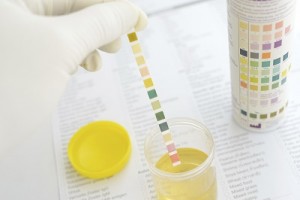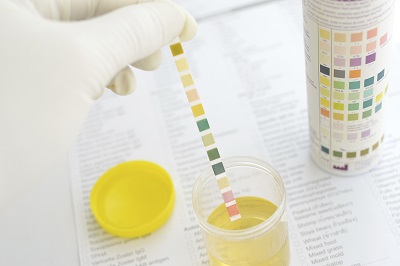 Although urine is sterile, it has hundreds of different kinds of wastes from the body. All sorts of things affect what is in your urine, including last night’s dinner, how much water you drink, what you do for exercise, and how well your kidneys work in the first place. This experiment will show you how the kidneys work to keep your body in top shape.
Although urine is sterile, it has hundreds of different kinds of wastes from the body. All sorts of things affect what is in your urine, including last night’s dinner, how much water you drink, what you do for exercise, and how well your kidneys work in the first place. This experiment will show you how the kidneys work to keep your body in top shape.
Please login or register to read the rest of this content.


I can share with you what I personally do with my kids… that might give you a starting direction. We have guidelines based on the DASH Diet for recommended daily level intakes for things like sugar, salt, fiber, fat, etc. and when I grocery shop with my kids, I hand everyone their own personal list of items to find, and ask them to pick out the best options (like breakfast cereal, crackers, etc.) within these guidelines.
We also have fun trying to figure out what the worst thing nutrition-wise is in the whole store, so it’s like having a treasure hunt.
Also once a week, we all have a say in what we are going to get for groceries for the week because everyone picks a meal for the week, and they have to make it’s balanced over the course of the week (pizza night is okay as long as we’re having a healthy diet most of the week). The DASH guidelines here tell you how much food to aim for in a day (the page is kind of old, but the content is still valid).
As for bad effects of sugar and dyes, it’s hard for kids to understand this because the effects take so long to become evident, like not brushing your teeth. It’s takes awhile before teeth fall out, and it’s too long for kids to connect the two together. You can look up studies and share your research with them, but other than simple experiments that show things like clogged pipes for diets high in fat, or osmosis experiments for high salt diets, there isn’t much I’ve found that kids really can make sense of.
I also say since I pay the medical bills, I am the one who sets the nutritional guidelines we follow. 🙂
Hi-
During the summer break I’m very interested in teaching my two boys (4th and 6th grade) about the importance of nutrition as it relates to growing bodies, energy, muscle improvement, disease, obesity, etc… Sugar, in particular, can be very dangerous and is often present in many of the packaged foods marketed towards kids. Ideally, I would like my children to make food choices based on factual food knowledge not because of a clever and misleading marketing campaign. Do you have any experiments to illustrate the harmful effects of some ingredients in foods (sugar, dyes etc) and empower kids to learn what “healthy” REALLY means by understanding labeling and ingredients.
Thanks for your mission! You make a profound difference in the lives of many.
Melissa